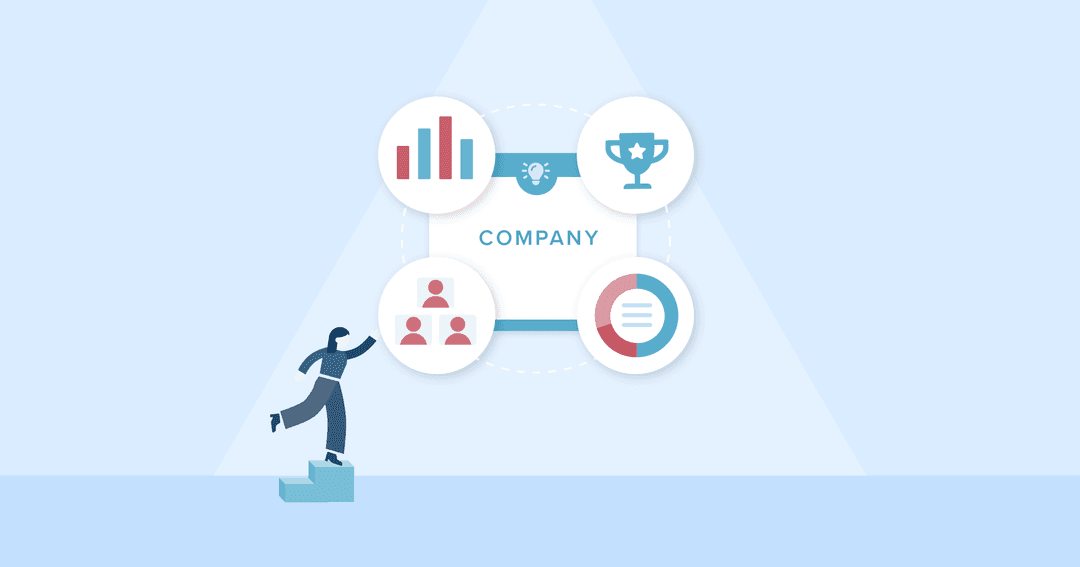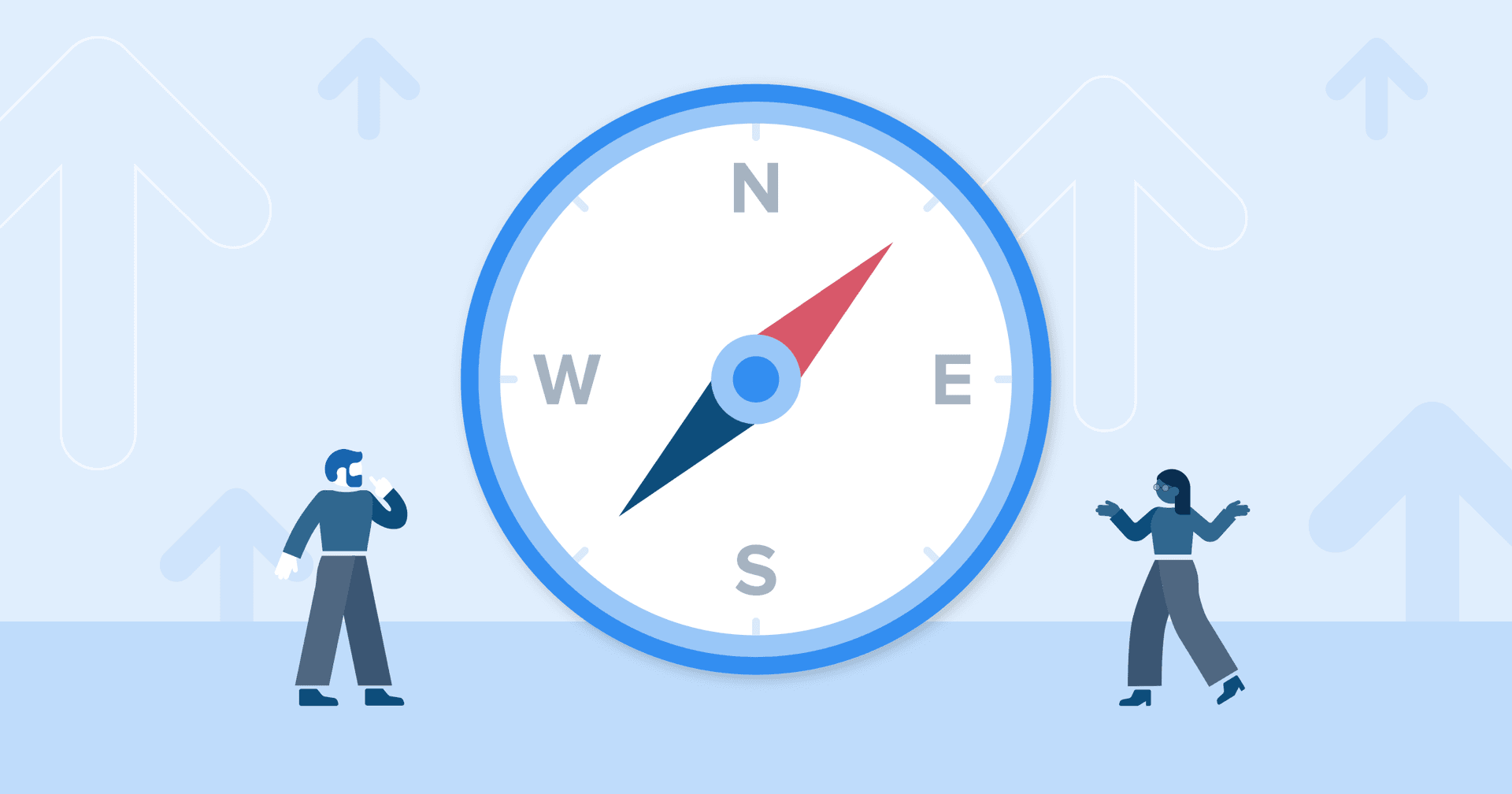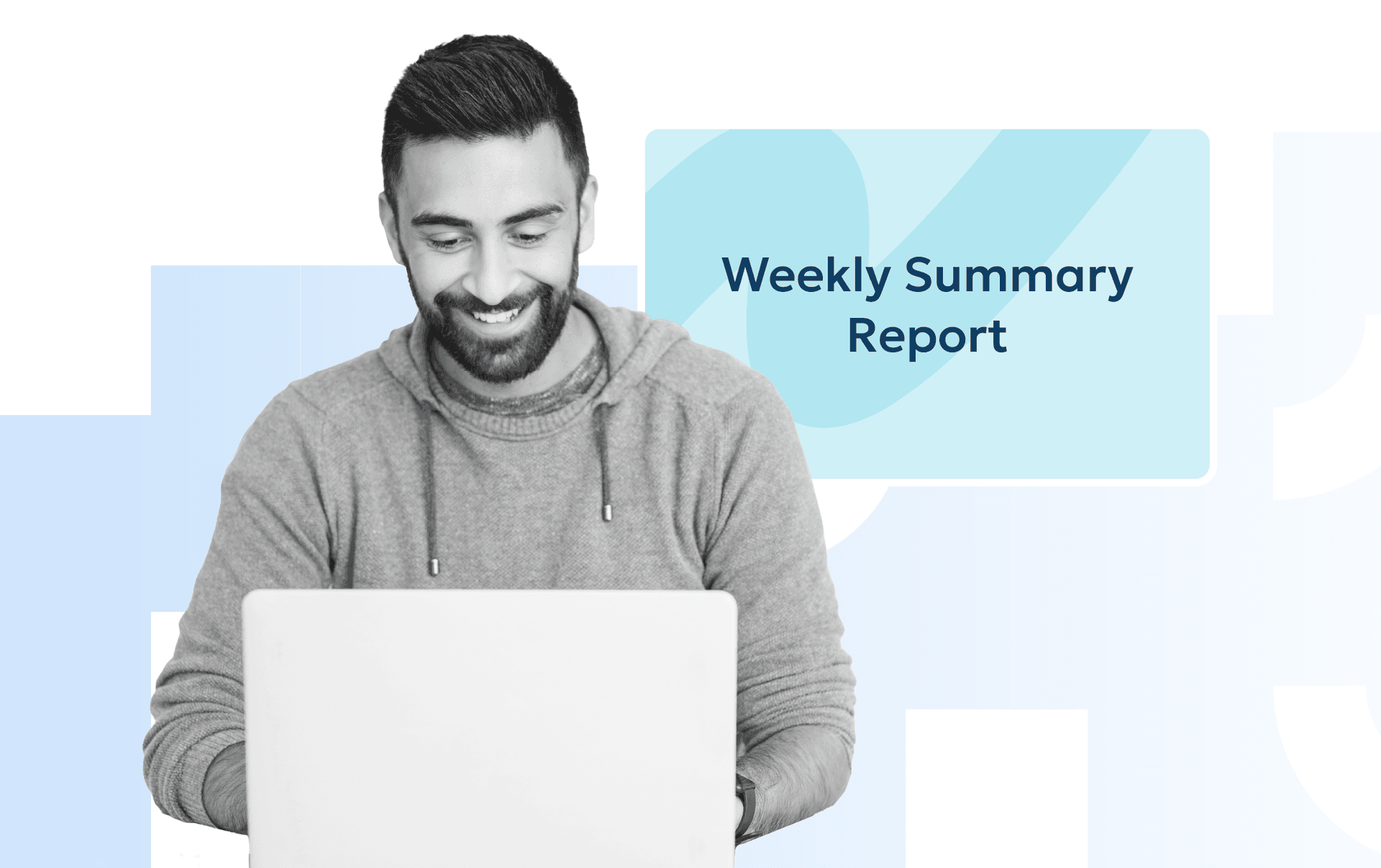Table of Contents
QUICK SUMMARY:
AgencyAnalytics CEO Joe Kindness dives into the nitty-gritty of keeping the communication lines open and maintaining trust between cofounders. With 14 years of experience leading a bootstrapped company, Joe highlights how spirited debates and solid mutual respect have fueled his company’s growth. From laid-back brainstorming sessions to navigating the tricky waters of power dynamics in scaling up, he shares practical tips on keeping a partnership agreement healthy despite business challenges. This article is essential for any business leader looking to succeed through teamwork and collaboration.
If there’s one thing I've learned from building a business from the ground up with my co-founding team, it’s the power of open and frank communication.
As I recently discussed on LinkedIn, people sometimes get a little concerned when they see my fellow AgencyAnalytics co-founder Blake and I talk things through.
“We’re not arguing; we’re debating,” I tell them.
These debates are essential: They mean an issue is important enough to warrant our full attention and effort. More often than not, these spirited discussions lead to compromises that drive better outcomes for our business. This dynamic has been central to our 14 years of growth at AgencyAnalytics.
Today, I want to share the lessons I've learned about promoting effective communication and trust among business co-founders. Whether you’re just starting out or navigating through your agency's growth, understanding how to nurture a healthy and strong co-founder relationship will be a game-changer for your business and its long-term success.
Navigating Co-Founder Relationships in the Early Stages of AgencyAnalytics
Looking back to when we first started AgencyAnalytics, it was all about exploring possibilities with Blake (Acheson, CTO & Co-Founder) and Jesse (Smith, Chief Product Officer). We were friends first, having met in school, and that friendship formed the bedrock of our business.
We entered this venture without unrealistic expectations or grand visions of becoming industry leaders. It was purely about the excitement of working together on something we were all passionate about—leveraging technology to solve marketing problems in innovative ways.
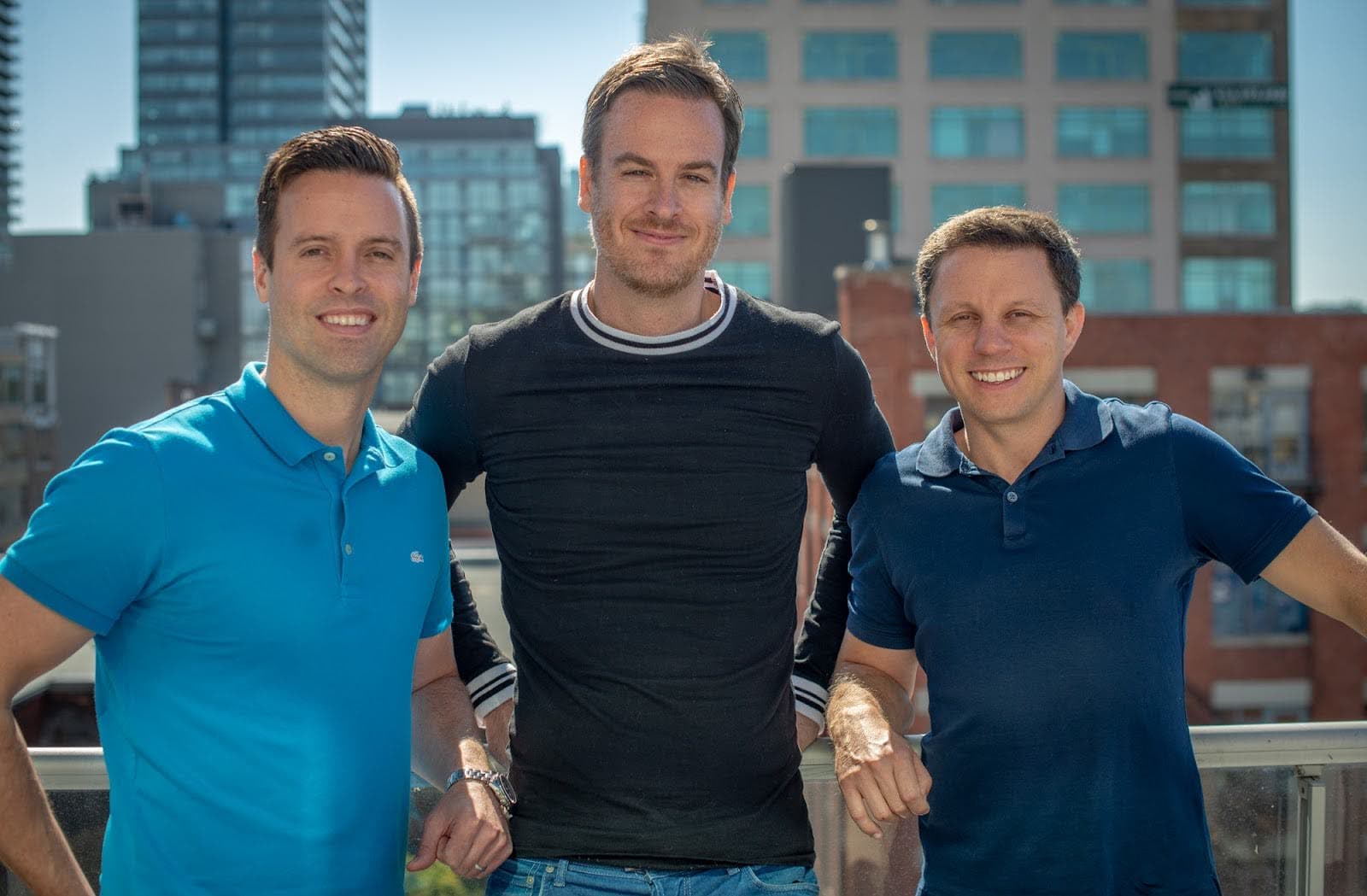
AgencyAnalytics’ founding partners (from left): Blake Acheson, Jesse Smith, and Joe Kindness.
In those early days, our discussions often blurred the lines between brainstorming sessions and casual hangouts. We'd debate everything—from code to customer service strategies. We trusted each other implicitly, knowing that each discussion was a step toward a solution we all had a stake in.
Being able to engage openly and passionately without taking things personally was vital. It laid a foundation for our business and a communication culture we pride ourselves on today. We learned that if we were willing to take the time to debate an issue thoroughly, it would lead to innovative solutions that none of us might have reached on our own.
As AgencyAnalytics began to take shape, the informal debates that Jesse, Blake, and I engaged in started to carry more weight. Each decision we made could potentially shape our future business.
This is where the trust we had built in our friendship became invaluable. We knew we could push each other's ideas to the limit without risking our relationship. It was about challenging one another to think bigger and better, but always with respect and the shared goal of what was best for AgencyAnalytics.
Trust also allowed us to be honest about our weaknesses and lean on one another for strength.
For example, my conservative approach often balanced Blake's natural inclination towards aggressive growth strategies. These clashing perspectives could easily have led to conflict, but instead, they brought balance. Jesse, often acting as the mediator, played a crucial role in helping us find a middle ground.
Navigating co-founder dynamics taught us that having co-founders isn’t just about sharing responsibilities; it’s about complementing each other’s strengths and compensating for weaknesses. More importantly, it's about having the courage to let the best ideas win, regardless of who brought them up first.
4 Challenges We Faced as Co-Founders
Building a successful company with co-founders comes with a unique set of challenges. Here are some of the most common hurdles we encountered at AgencyAnalytics and how we addressed them.
Challenge 1: Divergent Risk Tolerances
One of the earliest and most persistent challenges we faced was balancing our different attitudes toward risk. Blake was often ready to push the envelope, while I approached growth with more caution. This difference in risk tolerance could have stalled many important decisions.
Strategy
We learned to leverage our diverse perspectives by allowing each viewpoint to be fully explored. Over time, we developed a decision-making framework that included trial periods for more aggressive strategies, rigorous data tracking, and regular reviews. This allowed us to experiment safely without fully committing from the start.
Challenge 2: Aligning Long-Term Vision
As AgencyAnalytics grew, aligning our shared vision for the company became increasingly challenging. What started as a unified idea of creating something innovative gradually evolved into different views on the direction the company should take.
Strategy
We addressed this by holding annual meetups, during which we realigned our visions for the company—structured brainstorming sessions that included input from key leadership team members. Ensuring that we all had time to voice our future aspirations and concerns helped us maintain a cohesive strategy moving forward.
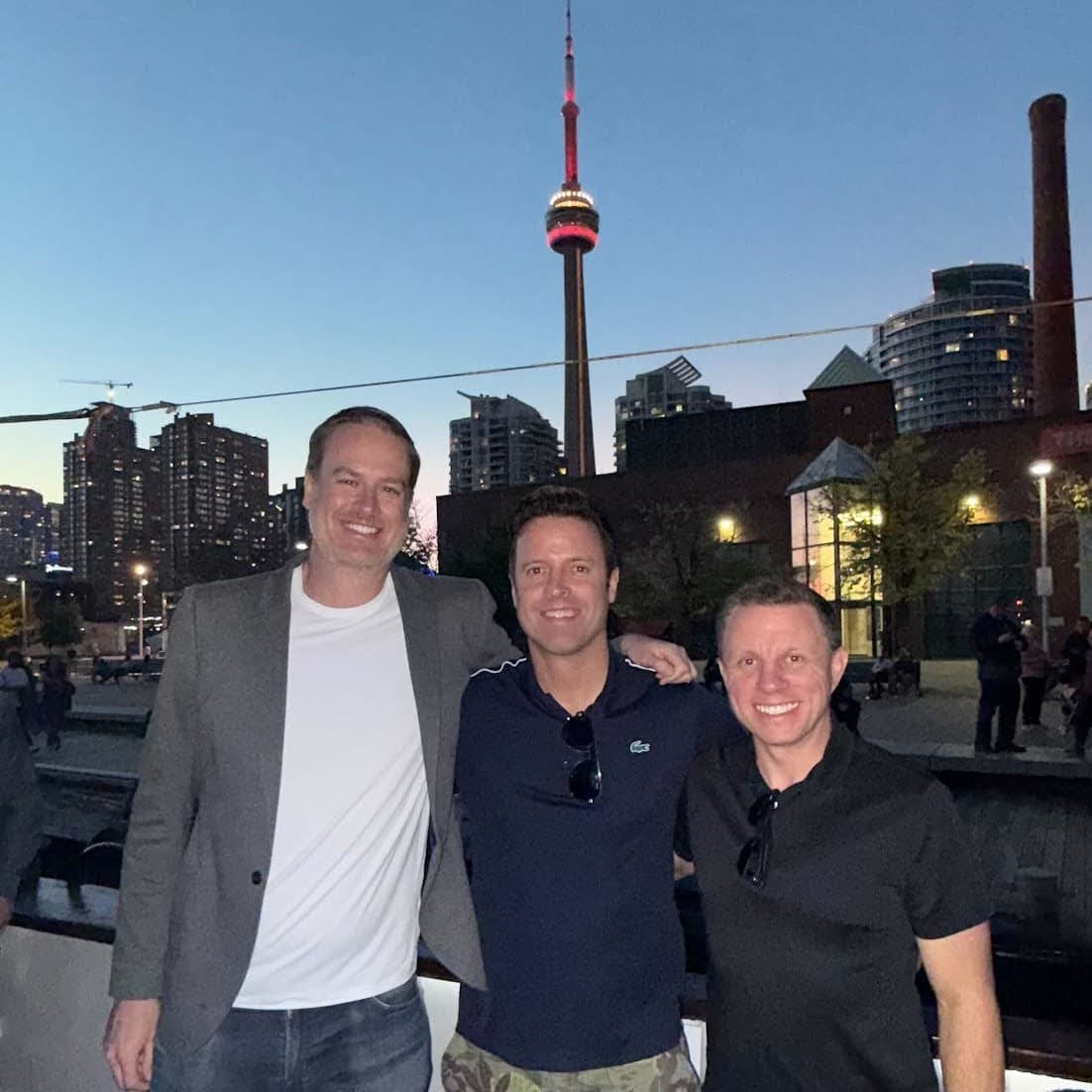
Challenge 3: Managing Growth and Responsibilities
Scaling a company brings about challenges in managing increased responsibilities and the complexities of a larger team. As founders, it was tempting to keep control over all aspects of the business, which quickly became unsustainable.
Strategy
We had to learn to delegate and trust our team to manage growth effectively. We invested in training and developing a leadership team that could take over certain aspects of the business. A clear organizational structure with defined roles and responsibilities ensured that decision-making could be distributed without losing oversight.
Challenge 4: Balancing Friendship and Business
Blending friendship with business can get complicated. As AgencyAnalytics transitioned from a passion project into a multimillion-dollar enterprise with 7,000 clients and hundreds of employees, the stakes increased along with our discussions.
Strategy
Our approach was straightforward: Keep debates focused on the business, not personal differences. It sounds easy, but it requires genuine respect and discipline. We learned to engage in discussions rigorously, ensuring that they were always aimed at finding the best outcomes for the company, not proving personal points.
Blake and I once faced a significant disagreement that led us to part ways for a while before we co-founded AgencyAnalytics. We were younger then and not quite adept at managing conflict. That experience taught us the importance of resolving conflicts constructively. By the time we founded AgencyAnalytics, we had a better grasp of navigating intense discussions without risking our partnership.
Impress clients and save hours with custom, automated reporting.
Join 7,000+ agencies that create reports in under 30 minutes per client using AgencyAnalytics. Get started for free. No credit card required.
Adopting Solutions for a Healthy Co-Founder Relationship
Ensuring the health of our partnership at AgencyAnalytics has always been about more than just good business practices; it's about maintaining the right balance between professional drive and personal relationships.
Here’s how we've managed to keep our co-founder relationship strong and productive:
Prioritizing In-Person Interaction
One crucial change we realized came during the pandemic. Remote work had inadvertently shifted our interactions to be less personal, and we noticed this was taking a toll on our productivity and personal connections.
When we returned to the office, we reignited the spontaneous energy and creativity of our startup days. Being physically together, we could bounce ideas off each other casually, bringing back the organic dynamic that had fueled our company’s success. It wasn't just beneficial for our business, it revitalized our friendships and reminded us of our roots and how we function best.
Enhancing Decision-Making Through Leadership Development
As AgencyAnalytics evolved, so did the complexity of our decisions. As our company grew and the stakes increased, we realized the need for a more nuanced approach to decision-making.
We expanded our leadership team to include directors and VPs with additional perspectives, expertise, and complementary skills. We created multi-layered decision-making processes that could handle complex scenarios more effectively. By involving leaders who specialized in particular areas, like marketing or product development, we ensured that decisions were informed by the best knowledge available.
Building a leadership team also helped reduce the load on any single person, which promoted a more democratic and inclusive environment where open communication and the best ideas could thrive.
Maintaining Personal Connections Outside Work
As our business got busier and more complicated, we realized how crucial it was not to let our work relationship take over completely. It's super easy to start seeing each other as business partners and nothing else.
So, we started hanging out now and then, not just at work but by doing fun stuff together. Whether it was catching a game, going out for a nice dinner, heading to Blake’s cottage for a weekend, or just chilling out together—these times were key for us. They helped us unwind, laugh a bit, and remember we're not just co-founders—we're buddies.
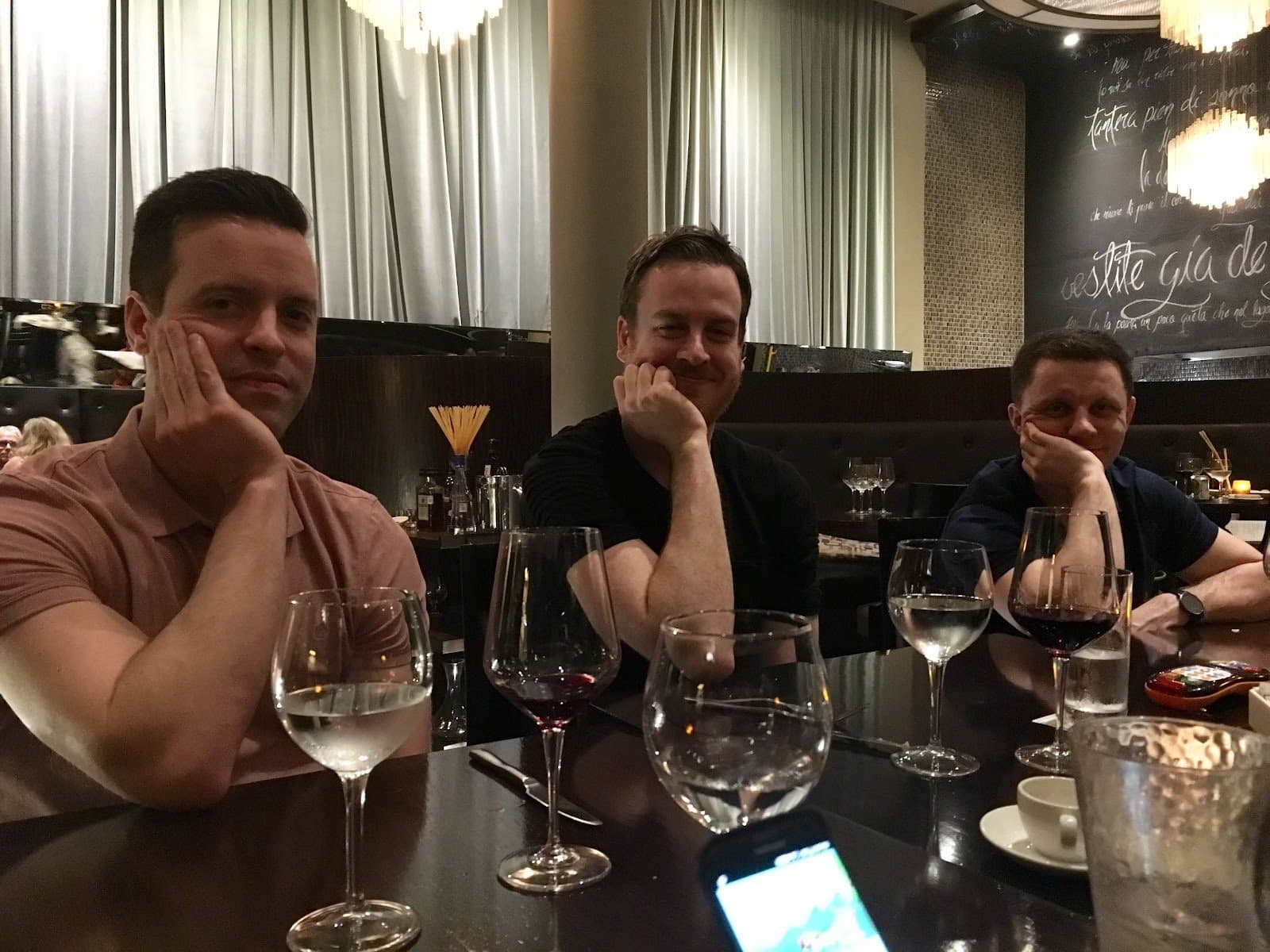
How Co-Founder Partnerships Change Over Time
As time rolls on, partnerships like ours tend to morph in ways you might not expect at the start.
In the early days, it was all about getting AgencyAnalytics off the ground. We were in the trenches together, brainstorming, coding, and handling every little thing side by side. But as the business expanded and our roles became more defined, the dynamics of our partnership evolved too.
Over time, as we brought in more team leaders and specialists, we found ourselves stepping back to focus on broader strategy instead of the nitty-gritty details. This shift changed how we worked and how we interacted. We weren't just the guys bootstrapping a tech company anymore; we were executives overseeing a larger operation.
Even our disagreements changed. They became less about the immediate issues and more about long-term visions and strategies. The stakes were higher, sure, but so was our commitment to navigating these waters together.
Partnerships change as businesses grow. The key to keeping them strong is to adapt, communicate, and never forget where you started.
Focus on What Matters for Successful Business Partnerships
Reflecting on our journey at AgencyAnalytics, if I could boil down everything I’ve learned into a couple of key takeaways, it would be these:
In the beginning, just get stuff done. It’s all about action. Put your head down, push through, and launch your ideas into the world. That’s the essence of the startup world—making things happen with what you’ve got.
As you gain some traction and consider scaling, you need to start thinking about your people first—building a culture. What kind of company do you want to create? How do you want to treat your team? The answers will define every aspect of your business going forward.
Our founder dynamic has evolved significantly over the years as the company grows, and so has our approach to business. From hustling in a dynamic startup environment to leading a more structured and strategic operation, the shift has been substantial. But one thing has remained consistent: our commitment to our people. We’ve learned that our strength comes from our team, and keeping their welfare at the forefront is not just good ethics; it’s good business.
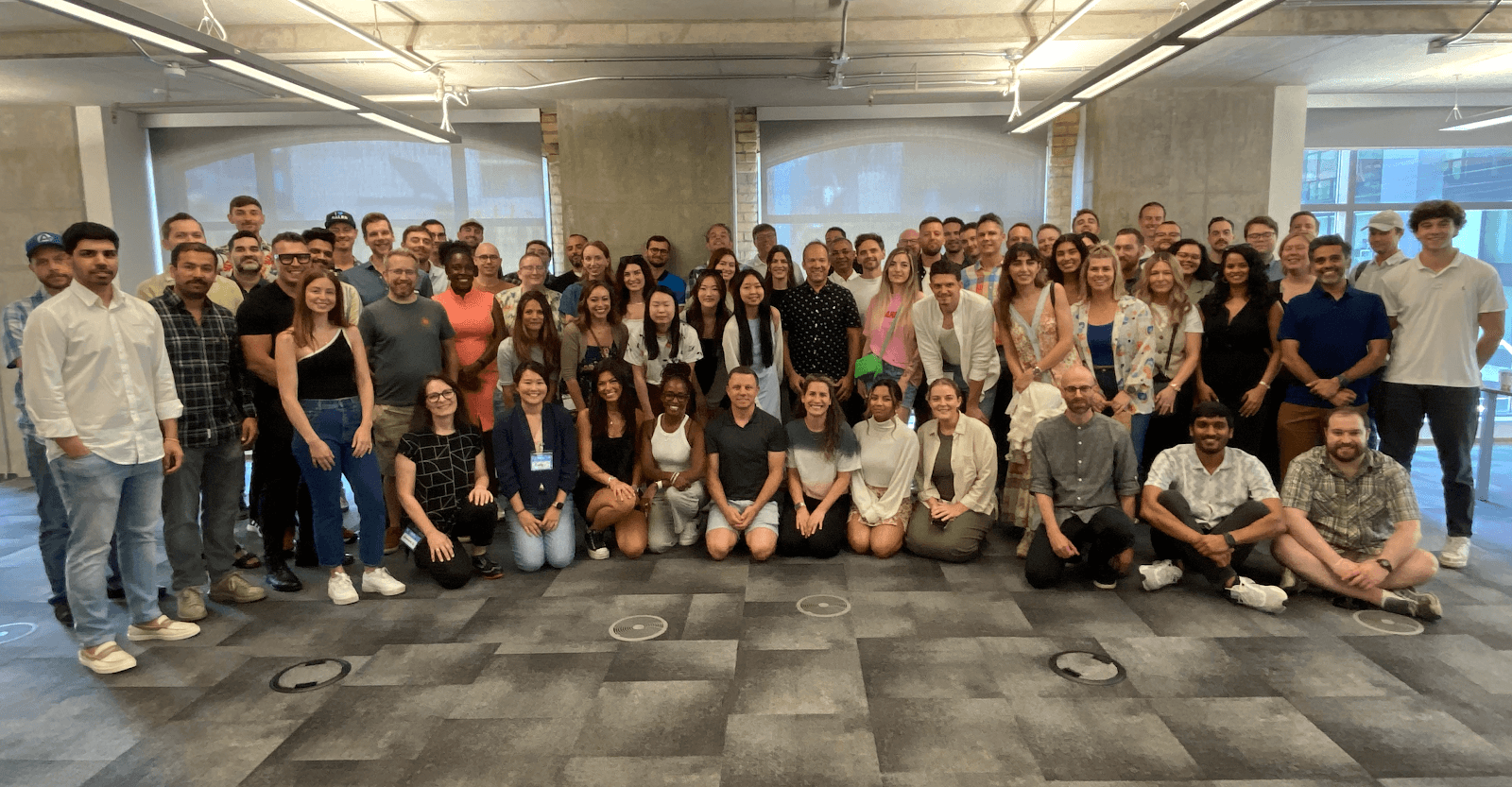
The AgencyAnalytics team in the Toronto office in June 2024.
So, whether you’re just starting out with your partners or steering through the challenges of growth, remember to keep the lines of communication open, adapt to the changing tides, and, above all, prioritize your team. That’s how you build something that lasts.

Written by
Joe is the co-founder and CEO of AgencyAnalytics, a marketing reporting platform used by more than 7,000 agencies. With experience creating multiple businesses, he thrives on tackling the challenges of sustainable growth and innovation.
Read more posts by Joe KindnessSee how 7,000+ marketing agencies help clients win
Free 14-day trial. No credit card required.



